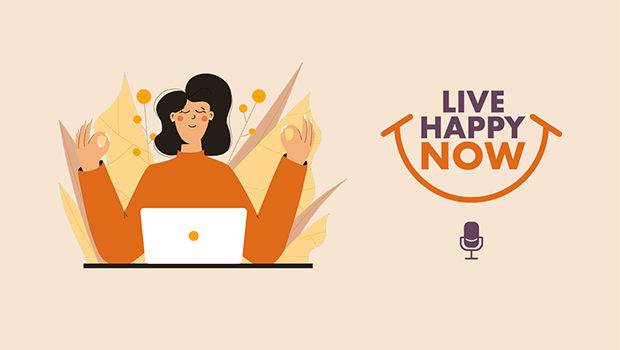Balance and weight training will keep you strong and healthy at any age.
People go to all kinds of extremes and expense to hold on to their youth. Yet there’s a simple, healthy habit that will not only keep your body looking fit but also trigger an internal makeover that could add years to your life. I’m talking about exercise.
With a sustainable exercise strategy that focuses on consistency, protecting your body and achieving balance, you can be strong and healthy at any age. You don’t need a fancy gym membership. You don’t have to spend hours a day working out. You simply need to commit to a realistic approach that will keep you looking and feeling your best.
Get moving—and stay in motion.
One of the best ways to achieve a stronger, healthier body is through purposeful movement. It’s an important tool in your fight against disease, mood disorders and early death. No matter your age, you should do your best to move with purpose every day. You need to make it a habit and then stick to it.
As you get older, you tend to become more sedentary. You need to fight this every step of the way. It’s not only seniors who fall into this pattern. Those in middle age find themselves in the same trap. The problem is, the less you move, the less you’re motivated to move. You become lethargic and lose energy. The less you move each day, the more your risk increases for falls, sprains and other injuries. Find ways to stay in motion during the day. Get up from your desk and take a walk outside. Do some gardening. Start your morning with some gentle stretching. Ditch the couch and go run some errands instead. Bike rides, yoga, hiking, dancing…whatever you enjoy. Just get moving.

Give your body what it needs
In your 20s, you were probably aiming for big biceps and flat abs. Don’t worry, you can still have both later in life! As you age, your physical needs change. You begin to lose muscle mass, flexibility and balance. Therefore, it’s important to expand your focus and incorporate strength training and other exercises that will combat these losses and help prevent injury.
The good news is there are plenty of options that will keep you fit and add variety to your routine so you don’t get bored and give it up. These are some of my personal favorites:
Retaining muscle mass will keep you stronger, stimulate bone growth, lower blood sugar, reduce lower back pain and combat stress. And yes, keep you toned and fit.
Weight training and dumbbell presses are effective, and using light weights will get the job done. If you don’t have access to equipment, try planks, knee extensions, squats or sit-backs. Many exercises can be modified and even performed sitting in a chair or leaning against a wall. Do what’s best for your body.
When your muscles and tendons are more flexible, you enjoy increased range of motion and much less risk of injury.
I highly recommend that you grab a yoga mat. Even a few minutes of yoga a day will do the trick. Yoga significantly improves your physical health and transforms your body into one that is firmer, leaner, stronger and more flexible.
You might also try Pilates (a system of low-impact exercises to develop strength, flexibility and balance), static stretching (where you hold a stretch for a designated amount of time) or myofascial release, a type of massage provided by a health professional to improve range of motion and increase flexibility after an injury.
Maintaining your balance becomes increasingly important as you age. Your bones become more brittle over time, so taking a fall later in life can cause significant damage. Aim to strengthen your core to feel more physically centered.
Yoga and tai chi do wonders for improving your balance, but they aren’t your only options. Simple exercises like balancing while standing on one foot or walking heel to toe (with your eyes opened or closed) can help you become steadier on your feet.
Everything in moderation
The best way to keep any good habit going long term is to keep things easy and sustainable. Staying strong and healthy doesn’t have to feel like a full-time job. The key is to implement small, manageable changes. Devoting even five minutes a day to movement and exercise is all it takes to get started. You’ll see results, and that’s when your motivation kicks in and you make that leap to do more on a regular basis.
When you take this approach to exercise, you can transform your body into one that is fit and strong. You’ll not only look younger, but you’ll feel younger and significantly increase your chances of living a longer and healthier life.
4 Exercises to Try
Planks can help tone your belly, reduce back pain, and improve your mood, balance, flexibility and posture.
Lie facedown with legs extended and elbows bent and directly under shoulders; clasp your hands. Feet should be hip-width apart, and elbows should be shoulder-width apart. Contract your abs, then tuck your toes to lift your body. You should be in a straight line from head to heels. Hold for as long as you can.
Knee extensions strengthen muscles in the front of your thigh and shin and can restore mobility and strength to a painful knee.
Sit in a chair with the balls of your feet and toes resting on the floor. Extend your right leg in front of you until your knee is straight. With right leg in this position, flex your foot so that your toes point toward your head. Hold in this position for three seconds. Take three to five seconds to lower leg back to starting position. Alternate legs.
Squats strengthen your quads, glutes and hamstrings, and many trainers believe help to reduce knee injuries.
Stand as tall as you can with your feet shoulder-width apart. Lower your body as far as you can by pushing your hips back and bending your knees. Pause. Now slowly push yourself back to the starting position.
Sit-backs stabilize your lower back and help with your postural stability. They can increase flexibility and range of motion.
Sit on the floor with your knees bent and your arms folded across your chest. Slowly sit back as far as comfortable while maintaining a flat back, then return to the starting position. Make sure your feet stay in contact with the floor.
(Visited 1 times, 1 visits today)

 DR. PARTHA NANDI is the creator and host of the internationally syndicated, award-winning medical lifestyle television show Ask. Dr. Nandi and author of the book Ask Dr. Nandi: 5 Steps to Becoming Your Own #HealthHero for Longevity, Well-Being, and a Joyful Life.
DR. PARTHA NANDI is the creator and host of the internationally syndicated, award-winning medical lifestyle television show Ask. Dr. Nandi and author of the book Ask Dr. Nandi: 5 Steps to Becoming Your Own #HealthHero for Longevity, Well-Being, and a Joyful Life.














